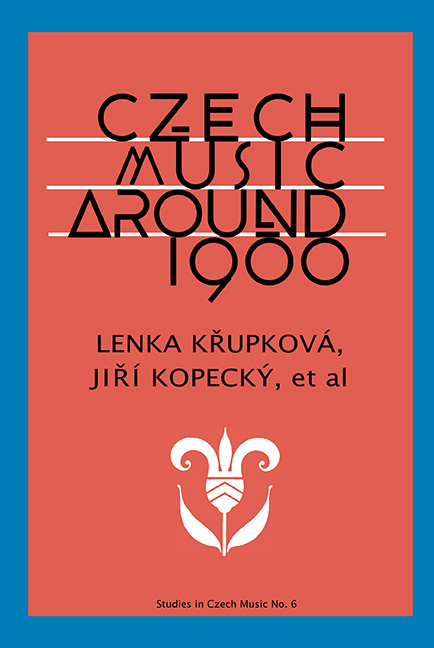Book contents
- Frontmatter
- Table of Contents
- Introductory Remarks on the Conception of This Book
- Flowers in the Graveyard, Tombstones in the Garden
- The “Other World” of Music at the Turn of the Century
- In the Footsteps of Tradition: The Spirit of Romanticism
- 1892: The International Success of Smetana's The Bartered Bride
- A Rare Meeting of Minds in Kvapil's and Dvořák's Rusalka: The Background, the Artistic Result, and Response by the World of Opera
- Delayed Subjective Romanticism in Czech Music: Novák as a Romantic
- Čapek's Feminism and Janáček's Femme Fatale: Notes on Traditional Opera Aesthetics in Janáček's Opera The Makropulos Case
- Czech Music at the Heart of European Music round 1900
- The Clash with Compositional Issues of European Music
- Index
- List of Illustrations
- About the Authors
- List of Sources Cited
Čapek's Feminism and Janáček's Femme Fatale: Notes on Traditional Opera Aesthetics in Janáček's Opera The Makropulos Case
from In the Footsteps of Tradition: The Spirit of Romanticism
- Frontmatter
- Table of Contents
- Introductory Remarks on the Conception of This Book
- Flowers in the Graveyard, Tombstones in the Garden
- The “Other World” of Music at the Turn of the Century
- In the Footsteps of Tradition: The Spirit of Romanticism
- 1892: The International Success of Smetana's The Bartered Bride
- A Rare Meeting of Minds in Kvapil's and Dvořák's Rusalka: The Background, the Artistic Result, and Response by the World of Opera
- Delayed Subjective Romanticism in Czech Music: Novák as a Romantic
- Čapek's Feminism and Janáček's Femme Fatale: Notes on Traditional Opera Aesthetics in Janáček's Opera The Makropulos Case
- Czech Music at the Heart of European Music round 1900
- The Clash with Compositional Issues of European Music
- Index
- List of Illustrations
- About the Authors
- List of Sources Cited
Summary
Discussions of operatic dramaturgy lie at the intersection of musicology, theater studies, and to some extent also literary criticism. Perhaps this is why efforts toward a theoretical grasp of issues related to operatic dramaturgy appeared relatively late on the international scene, not until the 1960s. The most influential conception of the evolution of operatic dramaturgy and libretto construction was created in German musicology, especially in the works of Carl Dahlhaus. In his concepts, but also in the works of authors of the younger generation, such as Albert Gier, we naturally find continuity with the tradition of German literary and theater studies, which are represented by Volker Klotz3 and Peter Szondi.4 In recent decades these interdisciplinary concepts have significantly inspired even Anglophone musicology, which was previously oriented primarily toward the purely musical analysis of operatic works. It can only be regretted that the pioneering work of Czech aesthetician Otakar Zich during the interwar period did not enter into the international discourse surrounding such topics.5 It is in the light of these interdisciplinary concepts that we will look at the issues pertaining to Janáček's operatic musicalization of Čapek's Věc Makropulos (The Makropulos Case, or The Makropulos Affair) and at the issue of the effect of traditional operatic aesthetic norms and principles in modern forms of opera of the 1920s.
Leoš Janáček first encountered Čapek's play in December of 1922, thus shortly after its premiere. He soon asked Čapek for permission to create a libretto based on the theatrical drama. Čapek agreed without any objections that Janáček could manipulate the work according to the composer's own discretion, even though Čapek considered the genre of conversational comedy to be unsuitable for operatic treatment.6 He was not interested in collaborating with Janáček on the libretto, as he regarded the musicalization of the play a lost cause from start.7 Janáček began work on the opera in November 1923 and finished it, after some revisions, in December 1925. A year later TheMakropulos Case opera had its premiere in Brno. It was first performed in Prague on 1 March 1928; its first foreign performance came in Frankfurt am Main in February 1929, thus six months after Janáček's death.
- Type
- Chapter
- Information
- Czech Music around 1900 , pp. 93 - 104Publisher: Boydell & BrewerPrint publication year: 2017



